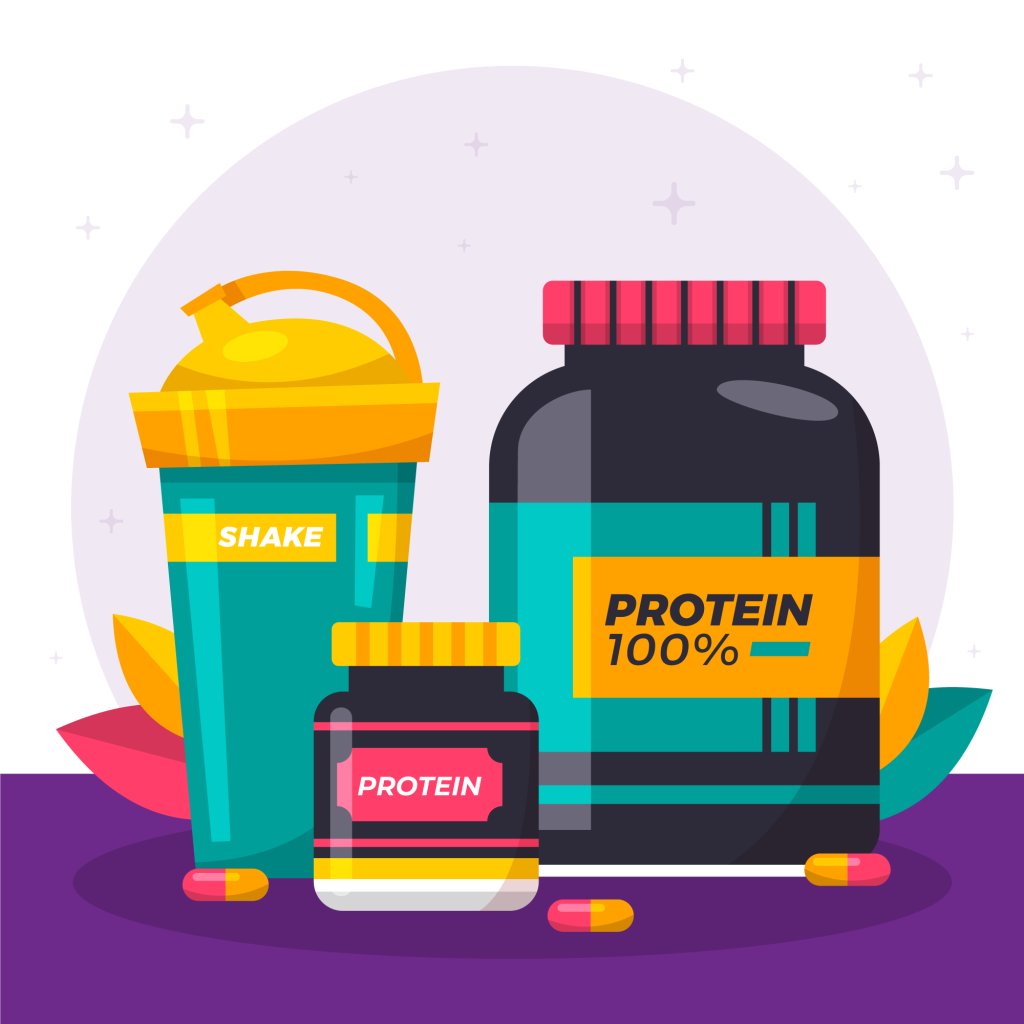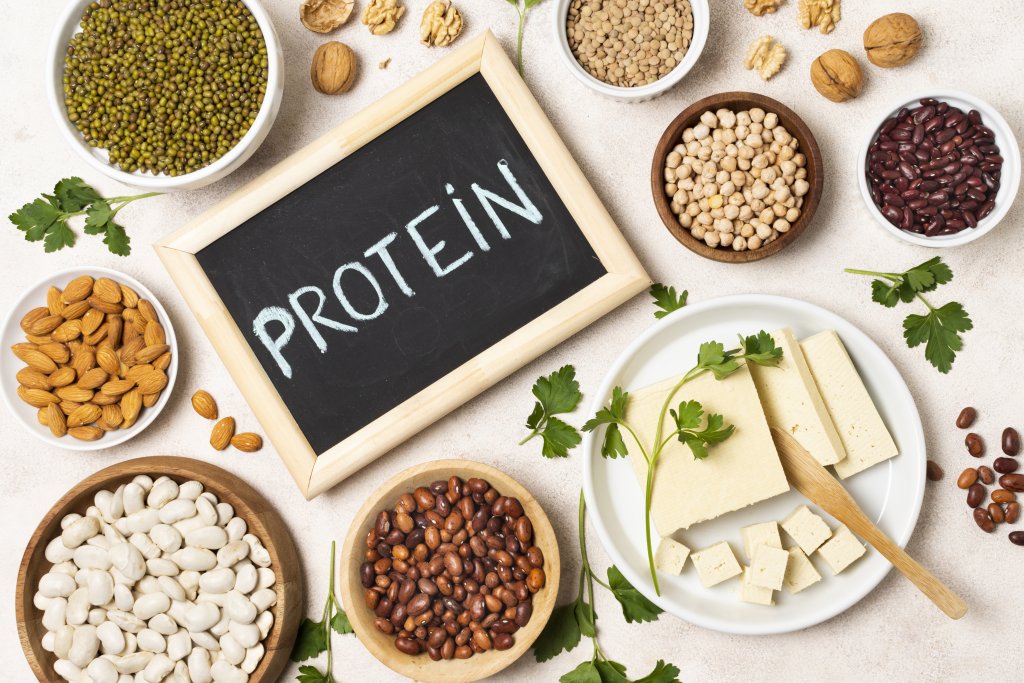If you’re on a quest to build lean muscle mass, you’ve likely heard the age-old advice: “Eat more protein.” While this advice is undoubtedly true, it’s crucial to understand just how much protein to eat per day to maximize your muscle-building efforts.
In this comprehensive guide, we’ll delve into the science of protein intake for muscle growth, debunk some common myths, and provide practical recommendations tailored to your goals, answering the question – how much protein to eat per day in order to build muscle, especially if you are going to the gym? Or how much protein do I need?
The Importance of Protein in Muscle Building
Before we delve into the nitty-gritty of protein requirements, let’s first establish why protein is so critical for muscle growth and try to answer the question of how much protein do I need to build muscles? Consider us your personal trainer for the best result in and out of the gym.
Proteins are made up of amino acids, which are the “building blocks” of muscles. When you engage in resistance training or strength exercises, you create tiny micro-tears in your muscle fibers. To repair and rebuild these fibers, your body relies heavily on amino acids obtained from dietary protein.
Simply put, without an adequate supply of dietary protein, your muscles won’t have the necessary raw materials to repair and grow, no matter how hard you train. But what do you mean by an adequate amount of protein? Simply put, it aims to answer how much protein to eat per day?
Factors Influencing Protein Requirements

Your protein needs for muscle building are not a one-size-fits-all equation and the answer to the question of how much protein do I need also varies from person to person. Several factors come into play when determining your ideal protein intake:
- Body Weight
- Activity Level
- Age
- Gender
- Training Intensity
- Caloric Intake
1. Body Weight
Generally, the more you weigh, the more protein you may require. This is because muscle tissue itself is protein, and individuals with greater muscle mass often need more protein to maintain and build upon that mass.
2. Activity Level
Your activity level plays a significant role in protein requirements. Someone engaged in regular intense resistance training will need more protein than a sedentary individual.
3. Age
Older individuals may require slightly more protein due to age-related changes in muscle metabolism and protein synthesis.
4. Gender
Men typically have greater muscle mass and higher testosterone levels, which can influence protein needs compared to women.
5. Training Intensity
The intensity and volume of your workouts matter. More demanding workouts create more muscle damage and thus require more protein for recovery and growth.
6. Caloric Intake
Your overall calorie intake also matters. If you’re in a caloric deficit to lose fat while building muscle, your protein needs may be higher to preserve muscle mass.
Protein Intake Guidelines for Muscle Building

Now that we’ve considered the factors influencing protein requirements let’s delve into practical guidelines for building muscle through protein consumption:
- Calculate Your Protein Needs
- Spread Protein Intake Across Meals
- Prioritize Protein Quality
- Timing Matters
- Listen to Your Body
1. Calculate Your Protein Needs
The widely accepted protein intake range for muscle building is between 1.2 to 2.2 grams of protein per kilogram of body weight per day (or 0.54 to 1.0 grams per pound of body weight). This range provides a good starting point for most individuals. However, let’s break it down further:
- Sedentary individuals: Aim for the lower end of the range (1.2 to 1.5 g/kg or 0.54 to 0.68 g/lb).
- Active individuals and those engaging in moderate resistance training: Aim for the middle of the range (1.5 to 2.0 g/kg or 0.68 to 0.91 g/lb).
- Intense resistance training and bodybuilders: Aim for the higher end of the range (2.0 to 2.2 g/kg or 0.91 to 1.0 g/lb).
To determine how much protein to eat per day, multiply your body weight in kilograms by your target protein intake within the appropriate range. For example, if you weigh 70 kilograms and are engaged in intense resistance training, you might aim for around 140 grams of protein per day (70 kg x 2.0 g/kg).
2. Spread Protein Intake Across Meals
Spreading your protein intake across several meals throughout the day can be more effective than eating it all in one or two sittings. This approach ensures a steady supply of amino acids to your body and breaks down the question of how much protein to eat per day.
3. Prioritize Protein Quality
The source of your protein matters. Focus on high-quality, complete protein sources like lean meats, poultry, fish, eggs, dairy products, and plant-based options such as tofu, tempeh, and legumes. These sources provide all the essential amino acids your body needs for muscle growth and help you sort out the dilemma of how much protein to eat per day.
4. Timing Matters
While the overall daily intake is crucial, specific timing can enhance muscle protein synthesis and works more than how much protein to eat per day:
- Pre-workout: Consuming protein before your workout can help prepare your muscles for impending stress and provide amino acids for immediate use.
- Post-workout: Within a few hours after your workout, aim to consume a protein-rich meal or shake. This is when your muscles are particularly receptive to protein for repair and growth.
- Before Bed: Many experts recommend consuming a slow-digesting protein source before bedtime, such as casein protein, to provide amino acids for muscle recovery during sleep.
5. Listen to Your Body
Individual variations play a significant role in protein requirements. Pay attention to your body’s signals. If you’re not seeing the muscle-building progress you desire, you might experiment with increasing your protein intake gradually.
Common Myths About Protein and Muscle Building
Before we conclude, let’s debunk some common myths about protein and muscle building:
- More Protein Equals More Muscle
- You Must Eat Protein Immediately After a Workout
- All Protein Sources Are Equal
1. More Protein Equals More Muscle
While protein is essential for muscle growth, consuming excessive amounts won’t necessarily lead to more muscle. Your body has limits to how much protein it can utilize for muscle synthesis. Focus on meeting your daily protein needs, and don’t overdo it.
2. You Must Eat Protein Immediately After a Workout
While it’s beneficial to consume protein post-workout, the idea of an anabolic “window” is somewhat exaggerated. As long as you have a balanced protein intake throughout the day, the exact timing of your post-workout meal or shake is less critical than how much protein to eat per day.
3. All Protein Sources Are Equal
Not all protein sources are created equal. Complete proteins, which contain all essential amino acids, are more effective for muscle growth. Additionally, plant-based sources may require more attention to ensure you get a variety of amino acids.
Conclusion
Protein is undoubtedly a critical component of any muscle-building journey. However, it’s important to tailor your protein intake to your individual needs and goals.
So, to answer the question of how much protein do I need, use the guidelines mentioned here as a starting point but remember that your progress will depend on a combination of factors, including diet, exercise, rest, and consistency.
Remember that building muscle is a gradual process, and patience is key. Stay committed to your training regimen, maintain a balanced diet rich in quality protein, and allow your body the time it needs to grow stronger, leaner, and more muscular.
Consulting with a registered dietitian or nutritionist can also provide personalized guidance to optimize your protein intake for muscle building success. And soon, you will be able to answer the question, how much protein do I need?




